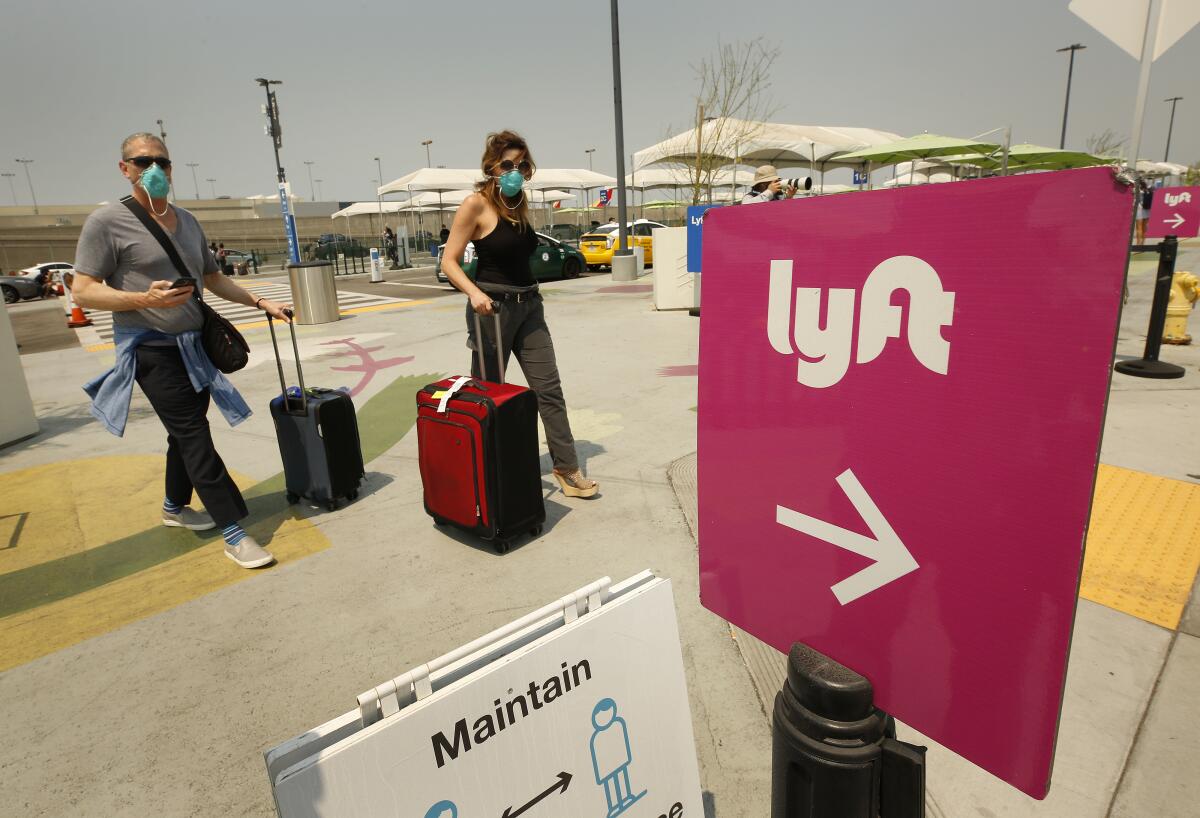California had a nearly $100-billion surplus this year. We don’t need to raise taxes with Prop. 30

- Share via
SACRAMENTO — If Proposition 30 passes in November, we should hang a sign at the border reading: “Welcome to California, the state with the nation’s most outrageously high income tax.”
Actually, we wouldn’t need to inform out-of-staters of that embarrassing fact. Word would spread fast across America after the election that we’ve embroidered our reputation as a far-left state drawn to tax hikes rather than setting spending priorities.
Logic says that wouldn’t be a good pitch for enticing people with money to invest here.
California already has by far the nation’s highest state income tax rate — 13.3%, compared with 11% in Hawaii, 10.75% in New Jersey and 9.9% in neighboring Oregon. But Oregon doesn’t have a state sales tax. We also rank the highest in sales taxes.
Those states mentioned above are outliers. The highest rates elsewhere tend to be in the mid-single digits. More relevant, two economic competitors, Texas and Florida, impose no income tax at all. Neither do five other states, including neighbor Nevada.
Proposition 30 would jack up our income tax another 1.75% to a previously unimaginable 15.05%.
And because only the richest Californians — 0.2% of tax filers, or an estimated 35,000 — would pay the new top levy, the odds are we’ll stick it to them on election day. After all, hardly any of us would have to pay that exorbitant rate.
But it won’t help California keep wealthy people from fleeing the state and recruit rich newcomers.
That’s not the argument we’re hearing, however, from the “no” side. It’s not claiming that taxes are already too high. After all, the California Teachers Assn., a major opponent, was primarily responsible for the current 13.3% rate.
OK, enough of that rant.
What’s Proposition 30 all about?
Gov. Gavin Newsom’s single-tunnel proposal is more respectful of the estuary’s farms, habitat, boating and communities, columnist George Skelton writes.
It’s not a tax increase cooked up by Sacramento politicians. In fact, Gov. Gavin Newsom adamantly opposes it as a “cynical scheme” and “fiscally irresponsible.”
It’s the product — as virtually all ballot initiatives are — of special interests. In this case it’s Lyft, the ride-hailing company, and an environmental coalition seeking more public funds to expedite action on climate control.
The tax hike would be imposed on personal incomes exceeding $2 million a year. That would raise up to $5 billion annually, according to the Legislative Analyst’s Office.
Of that, 80% would be spent to help California motorists convert to electric vehicles by providing rebates for purchases and installing charging stations. At least half of this would go to low-income households and communities.
It would be a boon for Lyft and other ride-hailing outfits because the state has ordered them to use zero-emission vehicles for 90% of the miles they drive by 2030.
Lyft has been Proposition 30’s bankroller, kicking in nearly $16 million so far.
Newsom also has signed an executive order banning the sale of new gas-powered vehicles beginning in 2035. So Proposition 30 would help low- and middle-income motorists buy battery-powered cars.
The remaining 20% of the new tax money — up to $1 billion annually — would be spent on preventing and fighting wildfires.
These are worthy causes. But should only the rich be required to foot the bill? Proponents say that’s fair because they can afford it much more than the middle class and the poor.
“California is the world leader in income inequality,” says Brad Williams, an economic consultant and former fiscal analyst for the executive and legislative branches of state government. “If we don’t do anything, the cost of transformation to zero emission vehicles is going to fall heavily on folks who can least afford it.”
He adds: “People at the top have done spectacularly well. We’ve all heard stories about people leaving the state, but there’s little evidence of that among high income folks. Most of the outward migration has been by lower income people facing high rents and cost of living in California.”
Mary Nichols, who was chairwoman of the California Air Resources Board under three governors, is part of an environmental coalition promoting Proposition 30.
Automakers, she says, aren’t making money off electric vehicles because the cost of producing batteries is still too high. She says unless the industry and consumers get government help, California may not be able to meet its zero emission vehicle goals.
Newsom says nonsense.
“Proposition 30 is a special interest carveout — a cynical scheme devised by a single corporation to funnel state income tax revenue to their company,” the governor asserted last month.
And he referenced a dilemma that everyone in Sacramento is aware of but lacks the courage to resolve: California is too dependent on wealthy people’s income taxes and capital gains. The revenue bounces up and down like a yo-yo in good times and bad.
“California’s tax revenues are famously volatile, and this measure would make our state’s finances even more unstable,” Newsom declared.
As for encouraging the purchase of electric vehicles, the governor noted that the state recently committed $10 billion to that cause.
The CTA strongly opposes the ballot proposition. Its campaign rhetoric targets Lyft. But its real objection is that education doesn’t benefit from the higher tax revenue.
Rather than the money being poured into the state general fund — with K-12 schools and community colleges automatically gaining a 40% share — it would be sent to a special kitty out of education’s reach.
That’s the sort of ballot box budgeting the CTA will always fight.
The state had a nearly $100-billion surplus this year. Voters don’t need to raise taxes even higher.
It would be an ugly look.
More to Read
Sign up for Essential California
The most important California stories and recommendations in your inbox every morning.
You may occasionally receive promotional content from the Los Angeles Times.















